Post by Serpentis on May 10, 2010 23:46:37 GMT -5

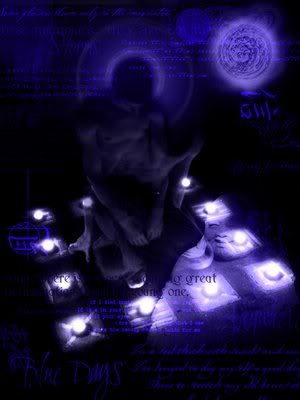
The Akashic Brotherhood: is a member of the Council of Nine Mystic Traditions in Mage: The Ascension. The Brotherhood is a loosely connected group of introspective martial artists who work to strengthen their body and mind. They also are famous for their hidden sanctuaries in the middle of populated places, easily able to hide their location from the masses with their powerful mind magic. They are also fortunate in that their powers are very easily dismissed as normal by the masses thus attracting less, if not zero, paradox. The reason for this lies in the propagation of the myth that kung-fu users can do miraculous things by the marital arts movies. A magic effect is nearly always considered coincidental if the user is obviously using some kind of martial art. They also practice a unique martial art called Do or "The Way" most Akashic brothers will attest to this extremely difficult martial art being the way to enlightenment or at least one way. Most intermediate students of the Akashic's are only novices in the art of Do. The Mind Sphere is their preferred Sphere and members of the Brotherhood tend to have great proficiency with it. A common foci for Akashic brothers are either sashes, weapons, or pendants of Buddha or Tao. The Akashic Brotherhood is composed of both men and women, being non-discriminatory.
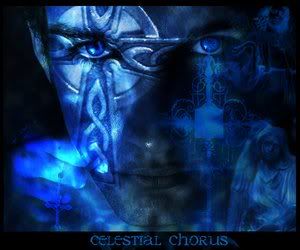
The Celestial Chorus: The Celestial Chorus is a Tradition of mages united by their efforts to touch the Divine as well as their belief in the One and Prime from which all things originate. Closely tied to the God of Abrahamic faiths, the One represents the source of all Creation and all Creation is believed to be a part of the One. Humans in particular carry shards of the divine within them, though it is known by many names: the divine flame, the soul, the avatar. It is this connection which the Celestial Chorus believes enables them to clearly hear the One's song and to shape Creation. While their faith is essentially monotheistic, it is accepted that the Divine has many facets and can be expressed through any number of names, religions, and creeds. Members of many faiths and denominations (including a variety of soft polytheists) come together in worship and service of the One, accepting that each person has their own path to the One. Of course, this ideal remains a work in progress and the Singers' history has been one of divisions and compromises, holy wars and martyrs, sacrifice and rejuvenation. Choristers perform acts of magic either by beseeching the One for aid or drawing on the One's authority to command Creation directly. As their name suggests, singing has long been an integral part of Chorister practice. It is viewed as one of the oldest forms of channeling the One, but it is only one of many methods. Blessings and curses carry with them Divine energy. Divinations are often performed by interpreting dreams, casting of lots, or bibliomancy. Anything that draws people together including simple touches, communal ceremonies, and even sex are seen as ways to bring people closer to the One. On the other hand fasting, self-denial, vows, and other sacrifices are seen as ways to free oneself from dependence on base needs in order to refocus and better hear the One's call. Likewise, religious rituals and symbols of faith are manifestations of the One that can be touched and experienced.
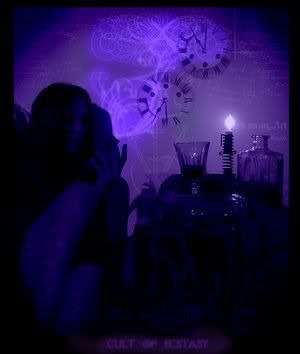
Cult of Ecstasy:Cultists employ their methods in pursuit of Passion(emotion), often the Nine Sacred Passions, knowing that only passion can take them high enough to surpass human boundaries and perceptions to reach the eternal moment. Some are more enlightened than others as to the true purpose and source of emotion, but the pursuit is the same.There are guidelines that have been passed down from the founder known as the Code of Ananda. Their purpose is the topic of some debate, but they act to protect Cultists and others from their passions. Central to the Code are rules forbidding the forcing of your passion or experiences on another (such as spiking your friend's pasta with peyote), as the Cult believes each person must want to find their own paths to enlightenment or Kammamarga. Many see the Cultists as little more than wanton hedonists, but the truth is more sophisticated. While it is true that many of them employ sex, drugs, music and dance in their magic, their true goal is indicatd in their name: Ecstasy comes from the latin ex stasis which actually means 'out of stasis'. The Ecstatics seek to transcend the illusions of reality and see the world without boundaries where their conciousness spans all space and time. This is known as the Eternal Moment. Sometimes also referred to as touching Lakashim, the heartbeat of the world.

Dreamspeakers:The Dreamspeakers are a recent Tradition, being formed as a dumping ground for tribal magi by the Europeans. However, they are heirs the primal magic of ancient shaman. Their ancestors were the Apache, Cherokee, Iroquois, Zuni, Ojibwa, Hopi, Navajo, Inuit, Athapaska and Salish of the Americas, and the Fulani, Egyptians, Shona, Dogon, Ashanti, Masaii, Ibo, Zulu, Himba and San-!Kung peoples of Africa. They saw the rise of the Aztecs, Toltecs, Olmecs, Zapotecs and Mayans, of the Inca, Cagaba, Chibcha, Caribs, Musica, Quechua and Aymara. They were the primordial shamans of Siberia, China and Lappland, and the Mongols, Koreans, Hmong and Mien hill tribes of Thailand, the Ainu of Japan, followers of Wektu Telu in Indonesia and tribal Filipinos. They are the heirs to many a diverse spiritual ways from around the world.
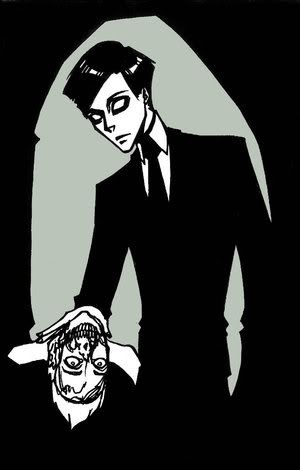
Euthanatos: Many Euthanatoi place a great deal of trust in probability and fate. A life may depend on the flip of a coin – if it doesn’t come up the way you want, then fate doesn’t want it to happen anyway. Other Euthanatoi may use magic, devices, and logic to determine whether a soul can be redeemed, or if it is best to end it now and allow it a chance at a more fulfilling existence through reincarnation. Euthanatoi believe in the Wheel of Fate – that beings pass through many forms and lifetimes on their way to fulfill their final purpose. A person who gets stuck on one point of the Wheel, who refuses to advance toward their purpose, slows down the Wheel for everyone.
Not all Euthanatos magic involves killing, either – in fact, if a situation can be healed without shedding blood, all the better. Remember that their purpose is not that of killing, but of healing – separating the diseased material from the healthy, so the healthy can thrive. Better to cut off an infected limb than to let the whole organism die.
Their focus is not only on the individual, either. The world is constantly changing, but it too can be held back by social diseases. The Euthanatoi make an effort to identify these areas and end their problems, thus allowing society to heal and grow. As the world descends further into darkness and degeneration, however, this is a losing battle.
The driving force of a Euthanatos is duty. They are fully aware of the consequences of what they do, and each time these death-Mages take a life, they must be certain that it is the right thing to do. The choice is final, and the people left behind must live the rest of their lives with the loss of the victim – not an easy thing to deal with. Understanding the consequences and the benefits of the Good Death – the death that heals, the end that brings new beginnings – is vital.
There’s a reason the Euthanatos pay so much attention to emotion, calculation and certainty in their actions: Jhor. All Mages gather Resonance from their actions, but the Euthanatos in particular gather Jhor as they deal with death. Jhor is the death-taint, a feeling of death and morbidity, an obsession with death which can suck the life out of a Euthanatos and leave them as an emotionless killing machine. Thus lies the critical paradox of existence as a Euthanatos: to enforce the need for death, to be proud of the job done, but not to enjoy the killing itself. The Euthanatoi cannot savor justice, cannot enjoy a well-done death, lest they lose themselves to the lure of death, the lure of Jhor. Most Euthanatoi are acutely aware of the irony – by killing monsters, they become monsters themselves.
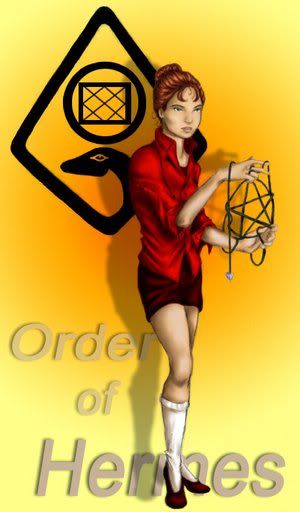
Order of Hermes: These mages use the power of naming things, trapping their essence and using them as their foci for power. They use ancient languages, arcane hand signs, old cryptography and books to weave their deadly spells against anyone who would dare disturb their scholarly pursuit of power. These magi who are among some of the oldest, or claim to be the oldest, traditions of magic use their powers primarily for their own agendas. They are a shifty lot to say the least.
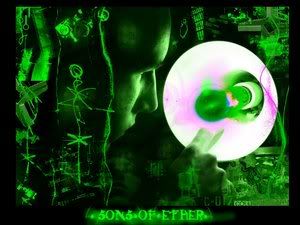
Sons of Ether: The Sons of Ether is a tradition of mages, one of two who are former conventions of the technocracy, a position they share with the Virtual Adepts. They are known for their highly personalized inventions, which can vary from the fanciful, to the strange, even to the horrifying (such is the case for many Mad Scientists). Their belief is that the universe is too vast for any one single equation to hold sway, thus no scientific theory is actually wrong. This adventurous spirit, and willingness to leap out into the unknown, is largely responsible for their departure from the Technocracy, not to mention the proclamation that ether was merely fiction. Key to the Sons' paradigm is Science (the word is always capitalised to distinguish it from the science of sleepers). Exotic theories of orgone fields, hypercombustion chambers and etheric transmission matrices enable the Etherites to create even more weird and wonderful devices. Their Science often has a baroque feel, as if leapt from the pages of pulp fiction or Victorian sci-fi - death rays, robotic servants built of brass and powered by clockwork and fantastic space or aquatic vehicles spring to mind when others discuss the Sons of Ether.
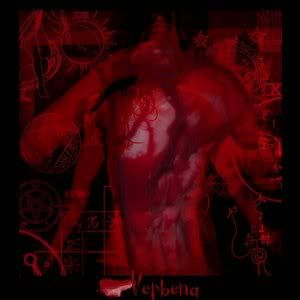
Verbena:[/b] The Verbena are crazy. No I mean it, they are insane....or at least they seem so to the rest of the mage community. They love their "old" customs of dancing in the moonlight naked, their sex magic, their orgies, their drug use, their idols, their chants, their trances, their shamans, their cauldrons, their incense, their daggers, and their robes. These magi go all out when it comes to being a witch or wizard. They go for the shock and awe of the old style religions with blood sacrifice. They govern the sphere of Life, dealing with healing and altering it as they see fit. They also get a kick from death, it being part of life and all. They love them some paganism and they love it hard and long. Members of this sect are often not too shy about having rough no holds barred sex with no commitment involved...granted they may also draw sigils all over your body and chant during it too. No matter how strange their methods may seem, no one can argue with the results. Verbena have long life spans, and often die looking as though they were still 23. They tap into the most primal magic of life itself, and, like the cult of ecstasy, aim to live it to the max.
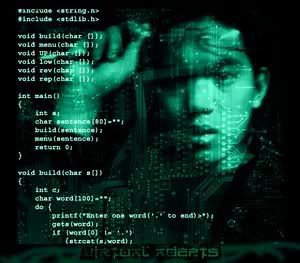
Virtual Adepts:The hackers, crackers and universal reprogrammers of reality, most of the Virtual Adepts work their magic through their own brand of Hypertech. Through the Internet, the Virtual Adepts connect to all places; through their super-powerful computers and surveillance devices, they see many things; through bionic implants, they plan on making a better human.
Many seek to create a 'Reality 2.0', altering and improving on this world, and many see the Digital Web - the ultimate Real Virtual Reality - to be this utopian world.
Others simply seek to bring the established order crashing down, using their computing ability to turn the Technocracy's machines on their creators. This chaotic streak, present in most hackers, has lead to many focusing on chaos maths in an attempt to understand the quantum world.
The alliance has, at times, been strained; like the Sons of Ether, the Virtual Adepts are suspected due to their Technocratic background. Unlike the Sons of Ether, who went to occasional extremes to prove their loyalty, the Adepts could care less if a bunch of tree-huggers and Merlins want to shake their canes at them from the shadows of the past.
The Virtual Adepts believe in the future, and that future belongs to the Virtual Adepts.
Sources: The WOD wiki, and Mage: The Ascension Sourcebooks


